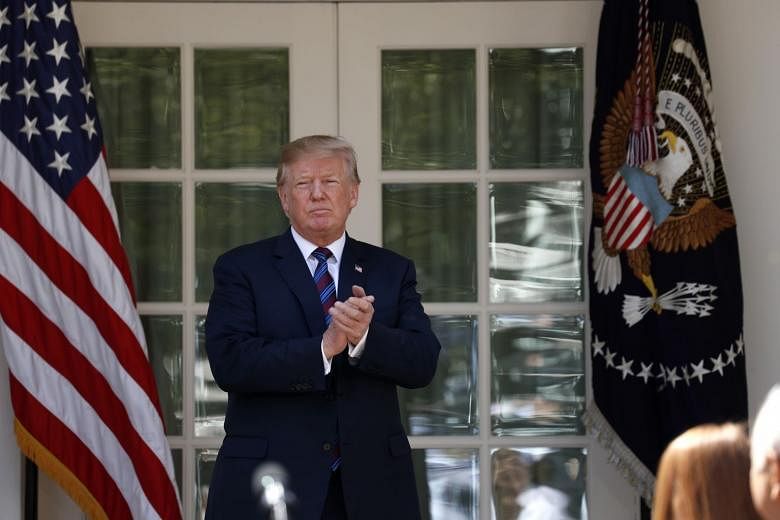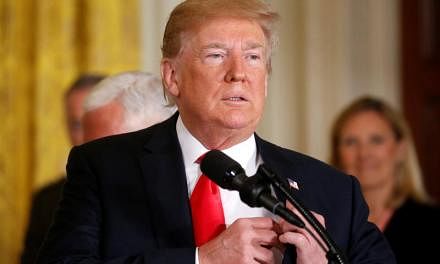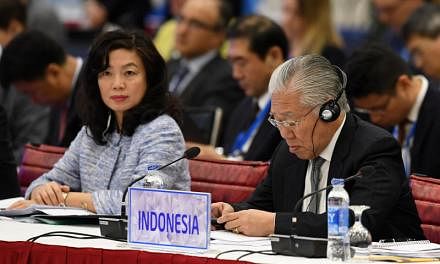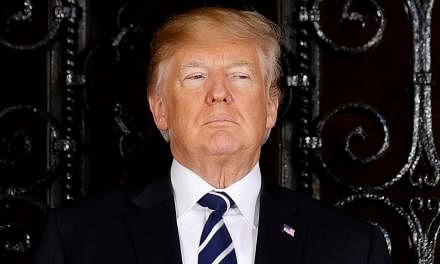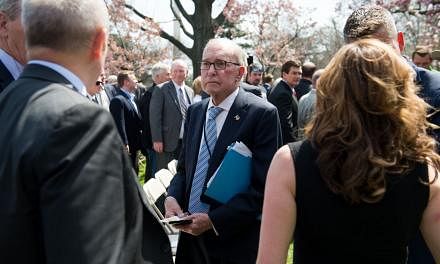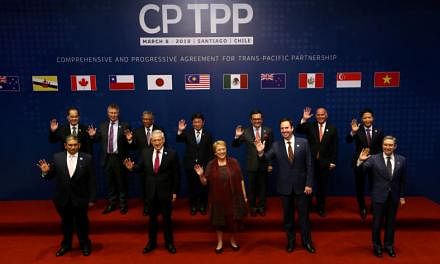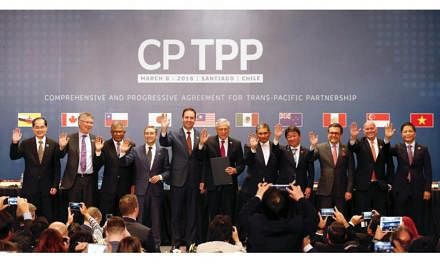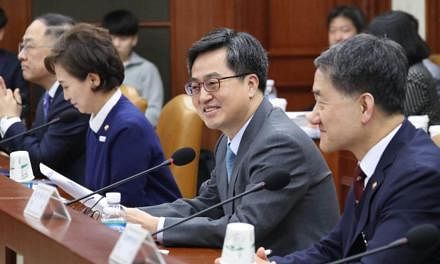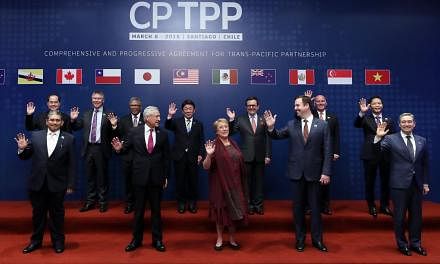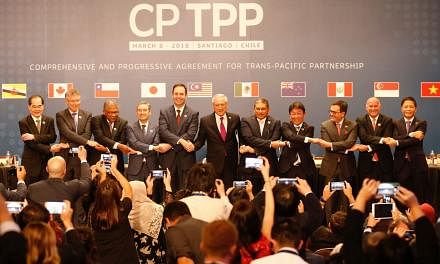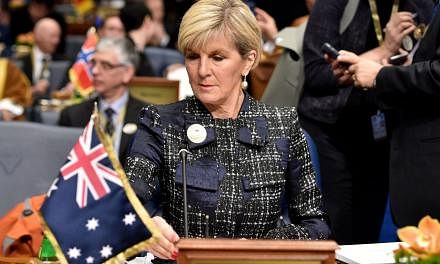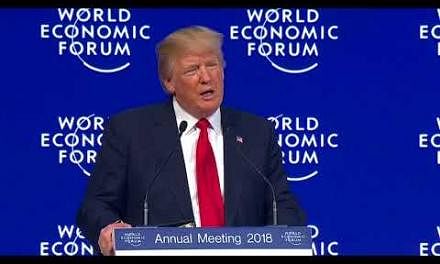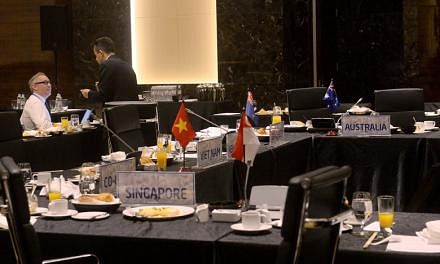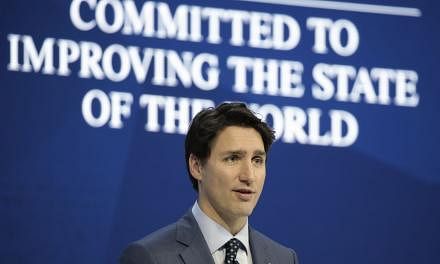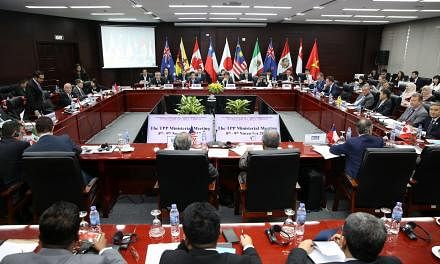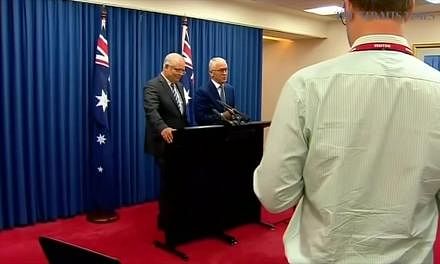WASHINGTON (AFP, REUTERS) - President Donald Trump said on Thursday (April 12) the US could re-enter the Trans-Pacific Partnership (TPP) if it could get a "better" deal.
The decision would mark an abrupt about-face for a president who had campaigned against the deal and swiftly withdrew the United States from it after taking office last year.
In his late night tweet, Mr Trump said the United States would "only join TPP if the deal were substantially better than the deal offered to Pres. Obama. We already have BILATERAL deals with six of the eleven nations in TPP, and are working to make a deal with the biggest of those nations, Japan, who has hit us hard on trade for years!"
The comment came after the White House announced earlier in the day that US Trade Representative Robert Lighthizer and top economic adviser Larry Kudlow were re-examining Washington's position.
Mr Trump has frequently disparaged multilateral trade deals, calling the 24-year-old North American Free Trade Agreement a "disaster."
The decision was welcomed by lawmakers from agricultural states.
But his most hawkish trade advisers, who now dominate his Cabinet after high-level departures, have expressed a strong preference for negotiating bilateral agreements, which they say play to US advantages.
Earlier in the day, White House spokesman Lindsay Walters said Mr Trump has asked his trade advisers to look at rejoining the TPP,
renamed the Comprehensive and Progressive Agreement for Trans-Pacific Partnership (CPTPP) after Washington's withdrawal in January 2017.
"The President has consistently said he would be open to a substantially better deal, including in his speech in Davos earlier this year," Ms Walters said.
The TPP had aimed to cut trade barriers in some of the fastest-growing economies of the Asia-Pacific region and to counter China's rising economic and diplomatic clout. Mr Trump pulled the US out of the pact, citing concerns about jobs.
Even prior to Mr Trump's official withdrawal, US participation in the pact was dead due to opposition in the US Congress. The US entered the TPP negotiations in 2008 and took until late 2016 for the then-Obama administration to abandon its attempt to push the pact through Congress.
"It is good news that today the President directed Larry Kudlow and Ambassador Lighthizer to negotiate US entry into TPP," Mr Ben Sasse, a pro-trade Republican, said in a statement after the meeting between Mr Trump and the senators.
Since the US withdrew from the TPP talks, the other 11 countries have forged ahead with their own agreement, and in the process cut chapters on investment, government procurement and intellectual property that were a key plank of Washington's demands.
The revamped CPTPP was signed in March 2018, with the countries involved - Singapore, Australia, Brunei, Canada, Chile, Japan, Malaysia, Mexico, New Zealand, Peru and Vietnam - hailing the agreement as a strong signal against protectionism.
CPTPP members Mexico and Canada are also renegotiating the terms of the North American Free Trade Agreement with the US.
When asked to comment on Thursday's comment by Mr Trump, a Canadian government official said there had not been any formal outreach so it was not possible to speculate on what a new pact would look like.
Japanese Prime Minister Shinzo Abe will meet Mr Trump next week. Japan, a close US ally, had led a scramble to keep the deal alive after US' withdrawal from it.
New Zealand Prime Minister Jacinda Ardern flagged challenges to the US rejoining the pact.
"If the United States, it turns out, do genuinely wish to rejoin, that triggers a whole new process," she told reporters in Auckland.
During his election campaign in 2016, Mr Trump was frequently sceptical of the value of multilateral trade pacts, arguing instead that bilateral deals could offer better terms.
But Mr Trump is struggling to get support from other countries for his recent threat to impose import tariffs on China and the US farm lobby is arguing that retaliation by China would hit American agricultural exports receipts.
